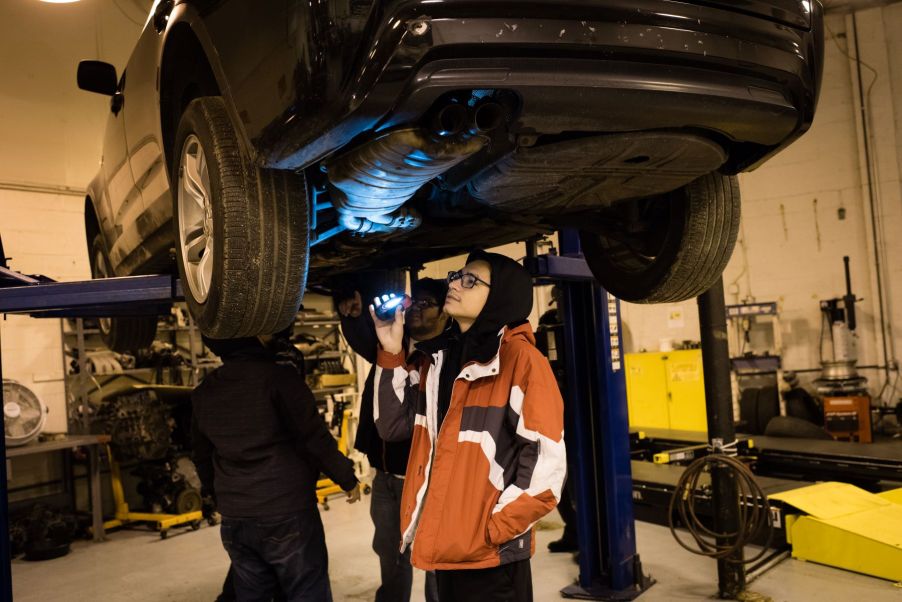
6 Possible Reasons Your Car Is Leaking
As a car owner, you have likely encountered a leaking car at some point. Such leakages are especially extenuated in the absence of regular maintenance, which results in the deterioration of different car parts. Depending on the type of fluid leak, there could be several reasons behind it. Below are six possible reasons your car is leaking:
6 possible reasons why your vehicle is leaking
Like any other machines, cars are prone to numerous issues, and addressing them as soon as they occur is crucial to maintaining your car’s longevity and smooth functioning. Car leaks are one such problem that should not be ignored and must be fixed promptly. Failure to do so could result in more significant problems, such as engine damage. According to Access Auto Insurance, the most common car leaks are oil leaks, transmission fluid leaks, brake fluid leaks, antifreeze leaks, power steering fluid leaks, and water leaks. Each type of leak occurs for different reasons. Here is a brief overview of each type of leak:
1. Oil leak

An oil leak is one of the most common types of leaks. If your car leaks oil, you will likely see a yellow or dark brown puddle beneath your vehicle. There could be various reasons why your vehicle is leaking oil, including:
- A degraded engine gasket
- A hole in your car’s oil pan
- A broken or corroded oil seal
- A worn-out oil filter
- A damaged or missing filler cap
- Poorly connected valve gasket
Typically oil leaks are pretty severe and fairly expensive to fix. Therefore, you must prepare your finances before heading to see a mechanic.
2. Transmission fluid leak
If you notice a sweet-smelling, brown, or bright red puddle beneath your car, your car is likely leaking transmission fluid. In most cases, a transmission fluid leak is due to a faulty seal, often after a transmission fluid change. However, this is not the only reason. Others include:
- Debris on the road
- A chipped or cracked pan gasket
- A faulty torque converter
If your car’s system develops a transmission fluid leak, and you continue driving it regardless, you could permanently damage your vehicle’s transmission, leading to expensive repairs or replacements.
3. Brake fluid leak
Detecting brake fluid leaks is often more complex than other leaks because they can range from a clear to a slightly brown spill near the wheels. However, these leaks are serious and usually require immediate attention, as your car will eventually lose its braking power if the leaks are left unaddressed. The most common reasons for cars leaking brake fluid are:
- One of the brake calipers, master cylinders, wheel cylinders, or rubber hoses could be leaking
- Seal failure caused by worn-out brake shoes or pads
- Loose bleeder valves
4. Antifreeze leak
Antifreeze leaks are often easy to spot since they appear as a bright green, yellow, or pink sticky spill beneath your car. An antifreeze leak is an issue that runs from moderate to severe and requires immediate attention. The most common reasons for an antifreeze leak are:
- A blown head gasket that allows the coolant and engine oil to mix or leak outside
- Corroded radiator tubes
- A hole in the radiator
- Damage from road debris
- Natural wear and tear on the sealing gasket
- A worn-out hose
If left untreated, an antifreeze leak can result in your car engine overheating and eventually breaking down.
5. Power steering fluid leak
Like brake fluid leaks, power steering leaks are serious and have dangerous repercussions if left unattended. For example, the steering wheel could lock up while driving, resulting in a loss of control. Typically characterized by thin drips of a brown or red fluid, you can see leaks toward the vehicle’s front. Reasons for power steering fluid leaks include:
- Loss of mass by the seals and o-rings due to age
- Breaking up of the o-rings into chunks due to mileage
Prevent leakages with proper maintenance
One of the best ways to prevent car leaks is through proper maintenance, which includes regularly checking your car’s fluid levels, changing your car’s oil and filters as needed, and keeping an eye out for any potential leaks. By being proactive in maintenance, you can often catch small leaks before they turn into bigger ones.


